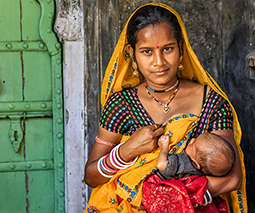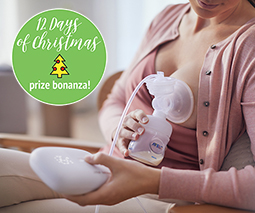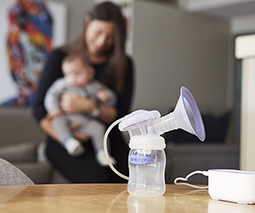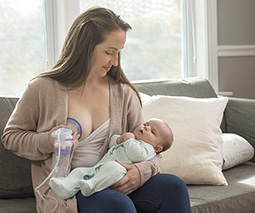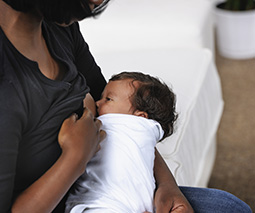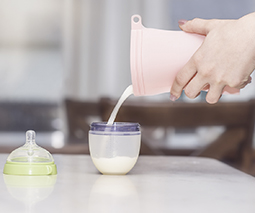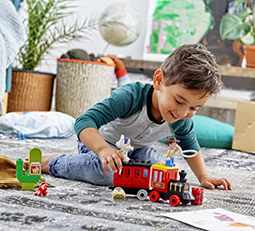How to prepare yourself for breastfeeding

During pregnancy, your body is already hard at work making its own preparations for breastfeeding. However, if you’re worried about how you’ll go, there are a few things you can do to help prepare your mind and body for what’s ahead.
The realities of breastfeeding
The amazing thing about breastfeeding is that you really don’t need to do much to get your body ready. Your breasts are already way ahead of you, prepping themselves for when your baby arrives. So to be honest, the best thing you can do before your baby arrives is to simply start getting your head around the idea of breastfeeding.
Have a think about what your feeding preference is, and talk to mums you know who’ve been through it. For many women, the breastfeeding falls into place very quickly. For others, it’s a longer journey, and it doesn’t always go to plan. Try not to place too much pressure on yourself and remember that many women have some initial problems that can be worked through.
Finding a positive mindset
If you’re happy to share your plans with friends and family, let them know you’re planning on breastfeeding. Talk about it positively – sometimes just stating the fact to yourself (and the people around you) can help build a deliberate mindset prior to birth.
While breastfeeding is totally natural, it can take some time to get used to. So assume the best, but also avoid setting any unrealistic expectations. And keep talking to your partner about it; their support is going to be critical in those early days when you’re getting the hang of feeding.

Getting informed
There are so many wonderful breastfeeding support networks out there. Do a bit of research and write up a contact list of local experts that you can reach out to when you do start breastfeeding. This could include the Australian Breastfeeding Association, a lactation consultant or your closest child health centre.
It’s also worth reading up on breastfeeding now, while you still have the time. Many hospitals also offer prenatal breastfeeding classes, where you can ask lots of questions, and get some expert tips and advice.
Personal care
Gone are the days of toughening up your nipples (ouch). It’s fine to keep up your usual daily hygiene practices. You may however notice that your nipples become increasingly sensitive in the lead up to birth, so going easy on the girls and changing your sleeping position can help.
Shopping tips
Again, there’s not much you need to buy for your boobs – although a good maternity bra is a worthwhile investment. Try to wait until you’re at least four months pregnant, and get it fitted by an expert so you can find the perfect size.
You may also want to check out the available breast pump options. Not everyone chooses to pump, but it can be worthwhile researching the choices and costs in case you do find you need to pump further down the line.
Common struggles
As you learn more about breastfeeding, you’ll no doubt come across the common struggles that many new mums face. The good news is that with the help of a good lactation consultant or nurse, many of these can be resolved fairly quickly:
- Latching issues; it can take a while to figure out how to attach baby to the breast and find the most comfortable feeding positions.
- Sore, cracked nipples; often related to latching issues.
- Fast let down; where the milk comes down too quickly and leads to a spluttering bub.
- Blocked ducts: this can result in mastitis, which may be managed with compresses or (in more advanced cases) antibiotics.
When you do begin breastfeeding, make sure you speak to your healthcare nurse about any issues that are concerning you.
Where you can go for support
The Australian Breastfeeding Association is a terrific resource for Australian parents. They have lots of information on their website, plus they offer a breastfeeding helpline on 1800 686 268.
Tresillian also has extensive breastfeeding information on their website, and a 7-day helpline on 1300 272 736.
Breastfeeding support and advice can be sought from a range of health professionals, including baby health nurses, lactation consultants, midwives and doctors.
 Need some more feeding advice? Our Parent School lactation experts can help. Click to find out more or book a one-on-one session.
Need some more feeding advice? Our Parent School lactation experts can help. Click to find out more or book a one-on-one session.
